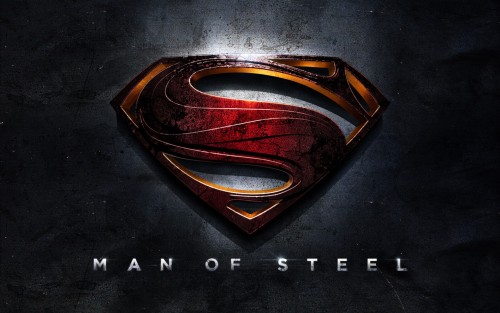Saw the new Superman film Man of Steel and was intrigued how often its makers wanted the audience to think of their superhero as a type of Christ. Having him speak to a priest in a church about giving himself up to save the world with a stained-glass image of Jesus on his knees in Gethsemane in the background perhaps says it all. I heard a FOX News anchor suggest that its mixed reviews were owing to the film’s reliance on Christianity (for my thoughts on that and the film see below).
It’s tempting for contemporary Americans to think of Jesus along the mythos of Superman, an alien humanoid capable of extraordinary feats of strength, impervious to earthly elements, and virtually indestructible.
Yet Jesus is nothing like that. When the Son of God humbled himself he became like what he had made in the beginning with the Father. A quiet, wondrous mystery took shape in the womb of a Judaean teenager; he took on our shatterable humanity “in every respect.” This means he was vulnerable to all the frailties of earth-made and earth-bound humanity, as fragile as anyone with a skeleton, brain, lungs, heart, skin and a spinal cord.
He could be crushed by stoning, burned by fire, weakened by lack of water food or sleep; was susceptible to cuts, bruises, bacteria, radiation or gravity. His cause of death was likely exsanguination or bleeding out all his life blood. He swallowed up death forever by dying, in agony and disgrace without resistance or appeal to a violent defense.
All the “superhuman” things Jesus did he did as a mere human. Out of weakness he was strong and he only demonstrated divine power (when he did so) for the purpose of reconciling all flesh and all things to himself, always from a motive of love and never the will to power.
Jesus gave his life for the life of the world but not as a kind of demigod but as Emmanuel, God in clay, with us and for us.
We fashion gods all of the time. In ancient times we used to make them of clay. The brilliance of a God who has the humility to make himself clay in order to redeem clay and us deaf, dumb, and blind makers of clay idols drives me to my knees.
Lastly, Jesus is no mere literary figure or imagined hero but a real person of history like Abraham Lincoln. Superman—like so many other gods—is fashioned from whole cloth.
What did I think of the movie, you ask?
The early trailers of the film seemed to advertise a kind a Malick-like human story with miracles that almost make sense and small beauty. It looked like it might have a meditative pace and wrestle with the “humanity” of someone from another world, and those scenes are in the film but dispersed throughout a movie that is relentless in its mass destruction. That storyline is, for me, utterly lost in cascading building after cascading building. The potential was there but it seems these new directors want to give us 9/11 again and again but off the Richter magnitude scale and they just keep upping the ante.
I’m fairly certain that the negative reviews actually having nothing to do with its deep Christian subtext but with film critics who are weary of overblown desolation.
For a good idea of what the film meant for me, see Steven D. Greydanus’s review for the National Catholic Reporter: http://www.ncregister.com/daily-news/sdg-reviews-man-of-steel

